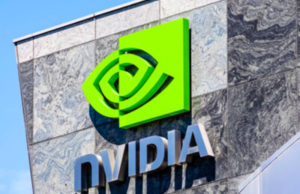MILAN – A battle is brewing that may well decide how Europeans connect to the Internet with mobile phones, laptops and other portable devices in the coming decade.
Mobile phone companies, chip makers and manufacturers of wireless networks are pushing their sometimes conflicting cases for how the limited amount of radio frequencies should be used to beam mobile data from the Internet to mobile devices and back the other way, a decision that is generally up to national governments.
The Intel chairman, Craig Barrett, is to meet this week with European Union officials in Brussels to call for «technology neutrality» on the issue. Intel wants the pieces of the radio spectrum to be used by the companies willing to pay the most for it, whether they are established mobile phone companies or start-ups setting up wireless networks based on new technologies like WiMAX, or worldwide interoperability for microwave access.
Intel is one of the biggest promoters of WiMAX because it is beginning to produce chips that embed the WiMAX technology. Intel says that by 2008, laptops will be WiMAX-ready in the same way that many are Wi-Fi-ready today.
Theoretically, WiMAX has a reach of about 50 kilometers, or 30 miles, and it is already available in selected areas in some countries, including the United States, Britain, Spain, France, Germany and South Korea. The appeal of WiMAX lies in the possibility to cover large areas with a wireless network that would be faster than Wi-Fi and would need far fewer antennas. The drawbacks are is that the networks are not yet built and that Wi-MAX achieves many of the same results as third-generation cellphone networks.
In most European countries, governments are designating the spectrum of 3.4 to 3.5 gigahertz for WiMAX operators. The wireless operators say that band is just barely sufficient, not enough to ensure an Internet connection does not drop when a user passes from the coverage area of one antenna to another – when on a train, for example.
To guarantee the handoff, operators say they need to be able to use the part of the radio spectrum of 2.3 to 2.5 gigahertz. The rub is that many European countries have already set this aside for mobile phone companies should they need the added spectrum to improve their 3G mobile phone networks.
«The lower frequencies that will make WiMAX mobile are the holy grail,» said Patrick Cruise O’Brien, the secretary general of the WiMAX Spectrum Owners’ Alliance, which is based in England and represents about a dozen mostly small, private owners of WiMAX spectrum.
«It would be detrimental to the future of European WiMAX if the mobile frequencies were handed over to the 3G operators,» said Cruise O’Brien. «WiMAX will only really matter in Europe if it is mobile.»
Without handoff ability, WiMAX works pretty much like Wi-Fi.
The spectrum battle is less of an issue in the United States and much of Asia and Latin America because the spectrum of 2.3 to 2.5 gigahertz has not been reserved for companies building 3G mobile phone networks there. In the United States, WiMAX got a boost two months ago when Sprint Nextel, a mobile phone carrier, said it would invest as much as $3 billion to construct a nationwide WiMAX network using the 2.5-gigahertz spectrum together with Intel, Motorola and Samsung. Sprint plans to begin trials next year and start the service extensively in 2008.
Karim Lesina, Intel’s government affairs manager in Brussels, said that without the 2.3-2.5 gigahertz spectrum, European operators «could lose the lead» they have in mobile technology.
The conflict is that WiMAX that is truly mobile threatens to make 3G mobile phone networks obsolete even before they are fully operational and after European operators have spent €100 billion leasing the spectrum and billions of euros more building the networks.
Some cellphone operators say they are interested in WiMAX, but Cruise O’Brien and other industry experts wonder whether they will push a technology that threatens to trump 3G.
«Carriers spent a lot of money on 3G and they want to reap the benefits of that investment,» said Jagdish Rebello, the California-based principal analyst of wireless communications for iSuppli, a market research firm.
«The 3G operators will do what they can to slow down the deployment of WiMAX, which I don’t see being rolled out until the beginning of 2008.»
In addition to making WiMAX mobile, the lower frequencies allow the same coverage as at the higher frequencies, but with fewer antennas, Rebello said.
Vodafone, Europe’s largest mobile phone company and the owner of 3G networks in Britain, Germany and Italy, among others, says that it also supports «technology neutrality.»
The company «thinks that a competitive auction would be the best way to allocate the available spectrum,» said Richard Feasey, director of public policy for Vodafone.
Fuente: International Herlad Tribune, Eric Sylvers

















